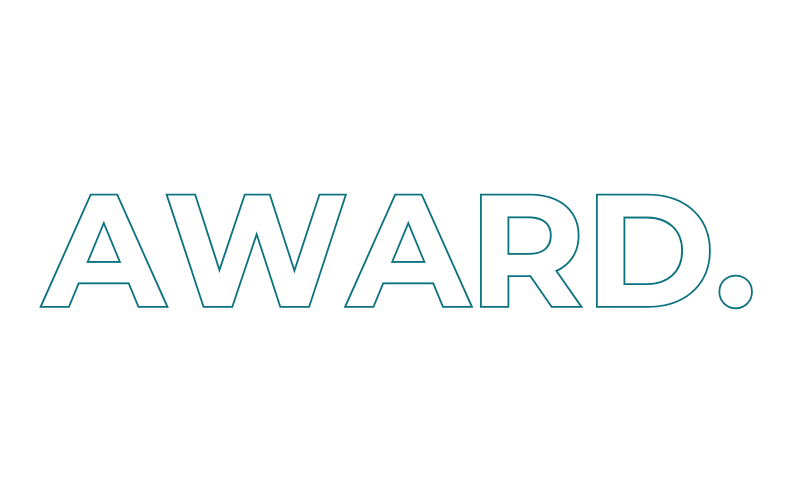Key Takeaways
- Opportunity is Anywhere: Don’t wait for the perfect opportunity. Even a Craigslist gig can lead to major growth.
- Find Your Niche: Specializing in an area or two can set you apart.
- Network: Attend events, pitch yourself, and let your work speak for itself.
- Be Adaptable: The industry changes constantly—stay flexible and willing to pivot.
- Invest in Yourself: Whether it’s improving your writing skills or learning new tools like SEO, keep evolving.
When people ask me how to become a freelance writer, I often take a moment to reframe the question. The truth is I don’t have all the answers. I can only answer with my personal story—because the truth is, everyone’s journey is different. Anyone telling you otherwise should be considered suspect until they prove otherwise.
My journey started long before I called myself a freelance writer. It’s been a mix of following creative instincts, learning from tough experiences, and figuring things out as I went along. Here’s a look at how I got started, what’s worked for me, and how you can carve your own path in this ever-changing world of writing.

1. Writing Was Always My Thing
As a kid, I was that student who actually loved writing assignments. Outside of school, I took on bigger challenges, like attempting long screenplays in high school and college. Looking back, those screenplays are rough—cringeworthy, even—but they showed me that I could pour hours into a creative project and actually complete it. That’s a skill every freelance writer needs.
2. College: Finding My Voice
In 2004, during my first semester at Montclair State University, I realized I wasn’t passionate about my major, broadcasting. So I switched to English/Creative Writing. That decision felt risky but the experience opened doors and educated me along the way.
One of those doors was studying with Dr. Ross Gay in 2005. He wasn’t just a professor; he was a presence in the department. He encouraged students to take risks with poetry, writing, and even your profession. He taught me that you can bend the rules once you learn them—a lesson that’s stuck with me through years of freelancing. He also taught me to stand up to employers when they do wrong by you–like assigning you to teach creative non-fiction when you were hired to teach poetry.
In the one year he was there, Dr. Gay did more than any educator in my life, teaching me that knowing your worth is crucial in life and especially creative professions. We never stayed in touch but I hope he sees this one day. Thank you, Dr. Gay.
3. Post-Graduation Reality Check
I graduated in 2008, right in the middle of the recession. The comments I got from countless people all boiled down to the same discouraging message:
“Your English degree is worthless.”
I believed it, and like so many others, I took jobs to survive. I worked at countless restaurants and bars. My first “real job” was at Enterprise Rent-A-Car in Brooklyn. Then, I bounced around some startups.
Those years weren’t glamorous, but they taught me how to handle rejection, adapt quickly, and communicate with all kinds of people. I didn’t realize it then, but these skills would serve me well as a freelance writer.
4. Taking the Leap in 2014
By 2014, I was ready for something new. Back in New York City after a short stint away, I decided this was my last shot to prove people wrong about my degree and career prospects. But after months of lackluster results, I almost resigned to the typical path I didn’t want any part of.
Then, I found a Craigslist ad for a writing role at a sketchy-sounding dance music brand. I knew it was a red flag–actually, numerous red flags–but I went for it anyway. If no one else is going to give me shot, why not create something out of the one opportunity presented to me?
That leap paid off in unexpected ways–but I had to fight to earn those rewards:
What was billed as a contributor role morphed into an Editor-in-Chief position by the time I took the job. It turns out nobody was on staff. This wouldn’t be a writing gig. It was a resurrection project. Today, I’d run for the hills at that offer. But not then. Not when I knew that this would likely be my only shot to show people that I could not only write, but that I could run the show myself. And I did just that for about six months:
I took over a dying online publication with no budget and, over time, built a team of over 40 writers and photographers across three countries. We covered major events, festivals, and interviewed artists until the owner decided to rebrand into a platform for his parties.
While far from ideal, this experience taught me two things:
-
- Even the most random gigs can lead to invaluable experience.
-
- It’s possible to create gold out of crap publications–something I’d attempt to do in cannabis later on in my career as well
5. Finding My Niche in Cannabis Writing
Fast-forward to 2017. After a stint at AOL and various startup roles, I was ready to return to freelancing. I remembered a quote I’d once heard:
“Find something you love to do and get someone to pay you to do it.”
That stuck with me, and I decided to focus on cannabis writing–probably because I heard the quote while I was packing a bowl. Using just one AOL article I’d written about cannabis, I started cold-pitching clients, using the article as a small proof on concept. I offered cut-rate services to prove my value. Within weeks, I landed my first cannabis client: PurePressure. From there, I built my portfolio and established myself as a go-to cannabis writer.
6. Building a Sustainable Career
Freelancing in the cannabis space wasn’t easy. It required in-person and online networking at industry events, cold outreach, and constant self-promotion. But slowly, I built a steady stream of clients, balancing media work with copywriting gigs. Coupled with word of mouth referrals, and I’d fully transitioned into cannabis content by 2019.
To get there, I worked on all sorts of copy and content projects. My work ranged from cannabis website copy and blogs to email marketing cannabis campaigns, and even diving into topics like local SEO for dispensaries. I also learned the value of cannabis branding and consulting, helping companies craft their identity in a competitive market–these skills were first honed at BrandYourself, an SEO firm I worked at from 2015 to 2016.
As I navigated the industry, I contributed to some of the best cannabis websites and discovered how essential dispensary SEO tips are for cannabis businesses. These projects opened doors to collaborations with cannabis marketing firms and even cannabis branding agencies.
7. The Pivot to Full-time Copywriting
After working in both news and media for seven years, it was time to pick a path rather than split time between two avenues. By 2023, I realized that media writing alone wasn’t fulfilling—or sustainable—for me.
The constant grind of deadlines and low pay made it clear that I needed to focus on work that paid fairly and allowed me to use my skills strategically. So, I shifted to full-time copywriting, SEO consulting, and digital marketing for dispensaries and cannabis brands.
And thus, AWARD was officially born.
This pivot has been transformative. Today, I help cannabis companies with cannabis email marketing services, dispensary branding plans, and marijuana SEO services. From crafting engaging copy to optimizing dispensary website design, I’ve found work that aligns with my skills and goals.
How to Become a Freelance Writer in 2025 (and Beyond)
Becoming a freelance writer isn’t about following a step-by-step guide. It’s about experimenting, taking risks, and building your career piece by piece. My journey started with an interest in writing and evolved into a full-fledged career in cannabis branding, dispensary SEO, and digital marketing for cannabis.
Your path might look completely different—and that’s okay. The important thing is to keep moving forward, learning, and staying true to your voice.
What got me to where I was shifted over the years. The playbook would definitely look different in 2025 than it did in 2017. But, at its core, the rules remain the same: always look for opportunities, fight for your place and when you get there, show everyone why you deserved your spot all along.
I hope this glimpse into my journey helps other aspiring freelance writers. There’s more to succeeding in freelancing, including finding clients, tax management, and more.
More on Cannabis News and Career Insights
Liked this article from AWARD? Be sure to check out more detailing Andrew’s first-hand experiences working in cannabis news and freelance writing:
- The Best Cannabis Websites for News + Info in 2025
- Fighting Back Against Digital Plagiarism: Lessons from My Experience
- 5 Professional New Year’s Resolution for 2025: Doubling Down on Growth and Community
- LinkedIn: Still the Best Cannabis Business Social Network
Want to learn more about how to become a freelance writer? Contact us today to learn more about the process and how we can help you along the way.




